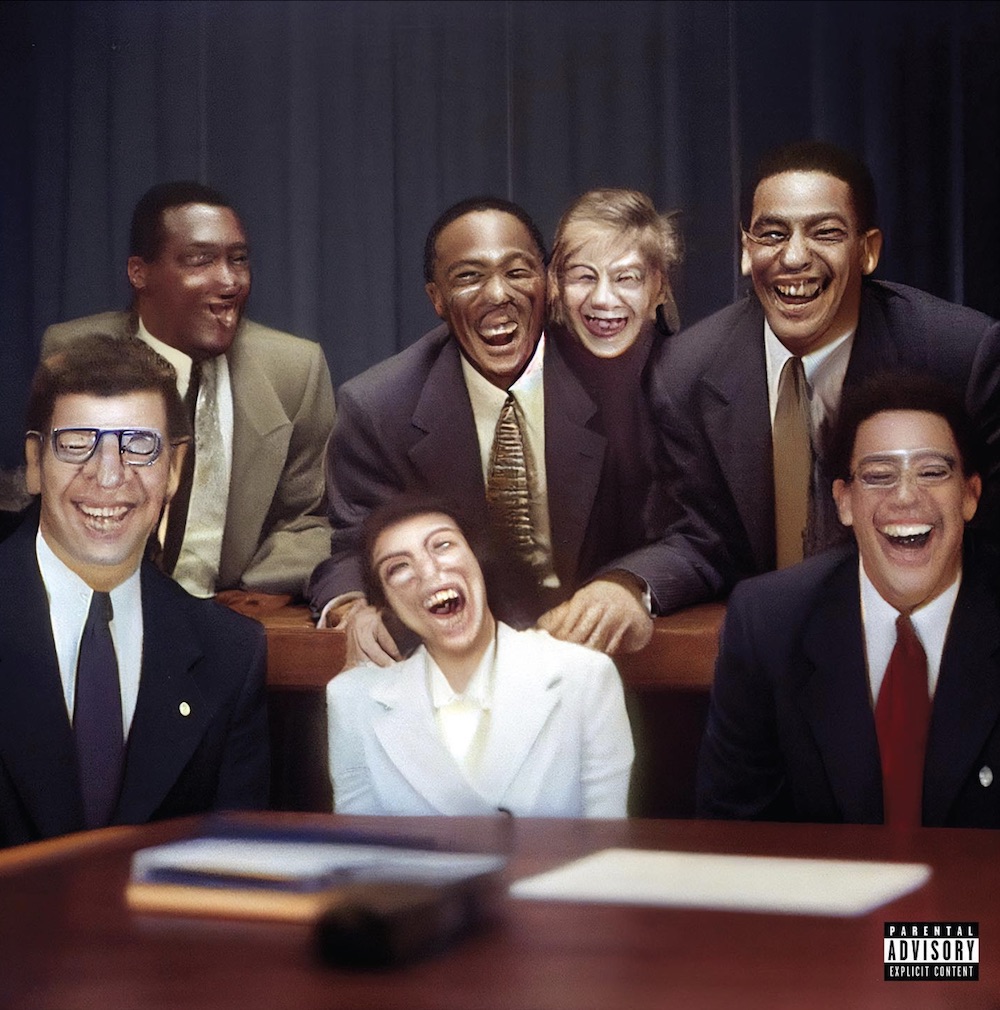Lil Yachty - Let's Start Here.

2023 | Psychedelic Rock, Neo-Psychedelia

A statement on context and conformity:
Albums like these are great. This assertion has nothing to do with the content of the music itself - I'm not going to go much into detail about that here, really - rather, they're great because they show progression. No one (and truly, I mean no one) would've predicted Lil Yachty, of all artists, to create a sprawling psychedelic rock record like this. He did though.
A similar event happened recently in the online music world when Quadeca released his late 2022 record. There seems to be a trend here where former rappers forgo their previous sound in favor of more psychedelic and lush soundscapes - this also seems to be a sound that followers of the online music canon simply eat up.
Popularity is dangerous. When a piece of media generates buzz on the internet, the discourse instantly divides into two - those who agree with the hype, and further add to it, and those who don't agree with the hype, and question where it even came from in the first place. The latter point is where both Quadeca and Lil Yachty's albums create interesting scenarios, though; it's widely understood where the hype for these records came from. These albums generate buzz purely by existing - the act of diverging from the expected inherently creates interest. Simply claiming that Lil Yachty made and released a psychedelic rock album is bound to turn some heads. For one, this makes marketing quite easy - it practically markets itself. It also creates a good subject to view how general perceptions of artists and music itself are handled online.
With online music forums, context is everything. We all know that one person who religiously sorts by esoteric to find the most obscure and unique pieces of music possible to posture themselves as someone who just knows more than you do. It doesn't necessarily matter if the music is truly better or worse than the canon - what matters is that you don't know it; and if it's impossible to find, how would you truly know if they were lying? The very aspect of it being esoteric and unknown is what creates its intrigue: musical archaeology. Uncovering lost artifacts. It sounds grand when put like this, and when done with the right intentions it creates for very healthy contributions to musical conversation - unfortunately for us, though, the people who do this often do it in vain, and not for the betterment of the music world. Essentially, for most, the aspect of something being unknown inherently makes it interesting. We want it to be good, because there is no counter-movement available. There's no reason to be a contrarian, because there's no general opinion present to be contrarian about in the first place.
People crave new things. When an already-popular artist releases music, it’s welcomed, of course, but not as welcomed as a debut from an unheard yet newly acclaimed artist who just started creating a presence for themselves online. Now, when an already-popular artist releases a curveball, like Lil Yachty with this record, buzz is generated instantly. It’s fresh. New. Something wholly interesting to talk about. With this, comes conformity.
As mentioned previously, there are two main ways to respond to discourse. More often than not, people flock to the first point - they go with the hype, and add to it. This is plainly because it’s fun to do so. Getting excited about things is enjoyable - it makes it feel like more of an event. This does, however, create issues. For one, people ignore the context of where these records come from. It is no secret (or at least, shouldn’t be a secret) that this record is derivative. It directly takes just about every single psychedelic rock stereotype from the genre’s genesis in the 60’s. Lil Yachty himself said that it took just about 6 months to make - and you can hear it. It’s rough around the edges. Frankly, his voice doesn’t really fit the instrumentation. But it doesn’t matter - because it’s new. As we know, people love new things.
Ultimately, there’s no real problem with conformity. It’s better than the much more annoying option of being a contrarian for contrarianism’s sake, and in this case, it’s inherently positive - buying into the positive hype about an album loses nothing for no one. The issue arises when context is ignored. Arguably, these albums’ only real charm comes from the fact that the music that the artists’ were making previously did not hold up to the same standards that people expect from their respective genres - in this case, rap. Put another way, no one was comparing “Lil Boat” to “To Pimp a Butterfly”. Therefore, seeing an artist who was formerly “made fun of” due to the mediocrity of their art create something like “Let’s Start Here.” is the musical equivalent to an underdog story in sports.
So, “Let’s Start Here.” is not unique. It’s not even that great. It is, however, an incredible step up from Lil Yachty’s previous output, and this is where the hype for this record (and Quadeca’s) comes from. The context that people focus on is Lil Yachty’s previous output in a vacuum. Every other influence and interference is ignored because it doesn’t matter - what matters, in the end, is that Lil Yachty improved.